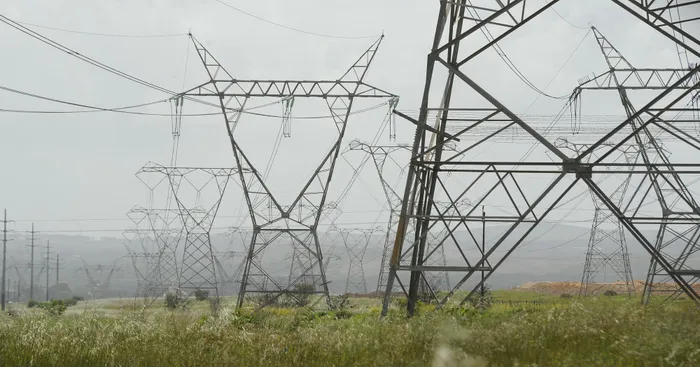Operation Vulindlela unlocks R500bn in private investment but SA needs a trillion more, says Presidency
REFORMS

"Eskom unbundling is making pretty good progress. On 1 April 2026 we will be launching the South African wholesale electricity market. That's the first and most critical step we will be launching," Dicks said.
Image: Henk Kruger / Independent Newspapers
South Africa’s flagship reform programme, Operation Vulindlela, has helped unlock about R500 billion in private-sector investment, largely driven by new electricity generation projects and reforms in telecommunications, including the long-awaited auction of 4G and 5G spectrum, which has opened the door to cheaper communication.
But this progress, while significant, is still far from the investment volumes the country needs, said Rudi Dicks, head of the project management office in the Presidency and co-lead of Operation Vulindlela.
Speaking during the latest PSG Think Big webinar on Tuesday, Dicks said the next phase of the program, Operation Vulindlela 2.0, is accelerating structural reforms at Eskom and Transnet, though the process remains highly complex.
“We require not just R500bn, we require a trillion rand or more above what we already invested on an annual basis,” he said.
Dicks said the second phase of the program had made significant progress in facilitating unbundling at key entities such as Transnet and Eskom.
He also said they were on the verge of major breakthroughs with the appointment of a Transport Economic Regulator, which was at the stage of appointing its executive team.
"Unbundling is quite complex. It is not easy to unbundle, to separate the Transnet National Port Authority (TNPA) from Transnet. There are debt covenant issues, for example, when debt holders who gave money to Transnet. Debt holders don’t look at Transnet and TNPA separately, it's inclusive of TNPA," Dicks said.
"We have to deal with the separation and transaction matters including being able to ensure that there is sufficient amount of confidence, that the sovereign is going to stand by with Transnet. We are going to introduce private sector participation (PSP) and we are going to introduce either concessions or equity stake into the railway system."
Meanwhile, Dicks said TNPA’s unbundling is moving ahead, and the 2022 reforms allowing private electricity generation and grid access have already reshaped the energy landscape.
On Eskom, Dicks said progress was solid and transformative.
"Eskom unbundling is making pretty good progress. On 1 April 2026 we will be launching the South African wholesale electricity market. That's the first and most critical step we will be launching," Dicks said.
"The actual market for competition in generation, the National Transmission Company of SA (NTCSA) being a critical component, the unbundling, including the functional unbundling of the transmission system operator into an independent NTCSA operator, is an important step we have to follow."
Dicks also did not shy away from the challenge posed by organised crime and corruption, saying it has a 10% drag on South Africa’s economic growth potential.
He said crime has a direct negative impact on investor confidence, not just financially, but on decisions to build factories and expand businesses in the country.
"We can't separate crime as something over there that someone must deal with and the economy must continue there. It is so interrelated that we have got to deal with it in a manner that improves business confidence," Dicks said.
Despite the challenges, Dicks highlighted an uptick in several indicators, including producer sentiment, manufacturing confidence, and perceptions of economic stability.
South Africa's recent removal from the Financial Action Task Force grey list is also helping to lower borrowing costs and restore international trust.
"With the greylisting matter now behind us, the cost of capital becoming much cheaper," Dicks said.
"The reforms are continuing to gain pace and to be implemented. Certainly, that's a sentiment we are going to work on to show we can change, we can deal with our challenges and we can work together with the private sector."
Dicks said he sees credible reasons for stronger confidence in 2026, driven by concrete developments.
"Confidence in 2026 should be in the private sector partnership announced in the railway network, generation plants being completed, and the electricity wholesale market launch on April 1st. These indicators for us will be important and perpetuate confidence," he said.
"The ability for the two players on the PSP on Durban's Container 2 terminal being resolved and both players saying they are not going to court. These are such important indicators that are going to be able to break the perception that we have and get investment going."
BUSINESS REPORT